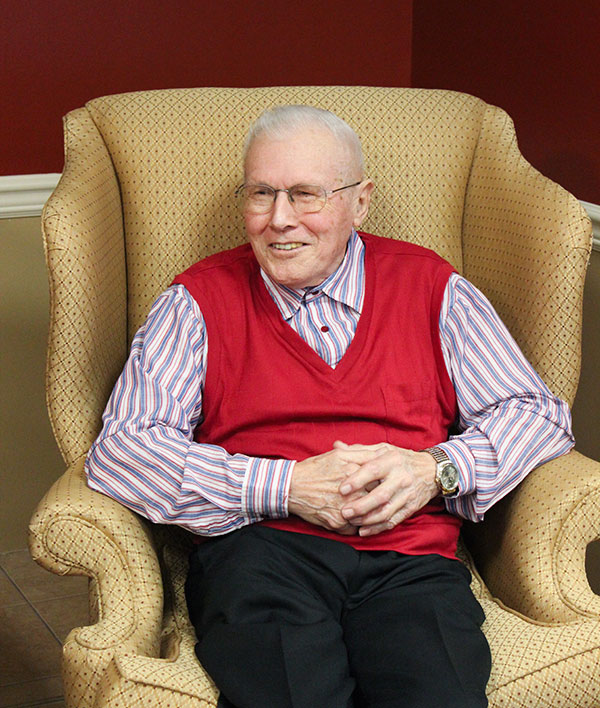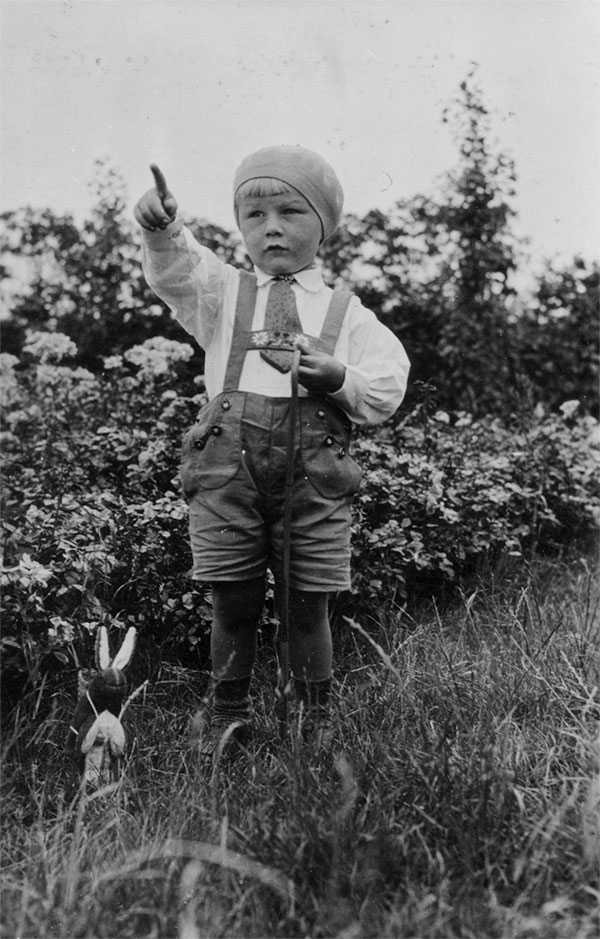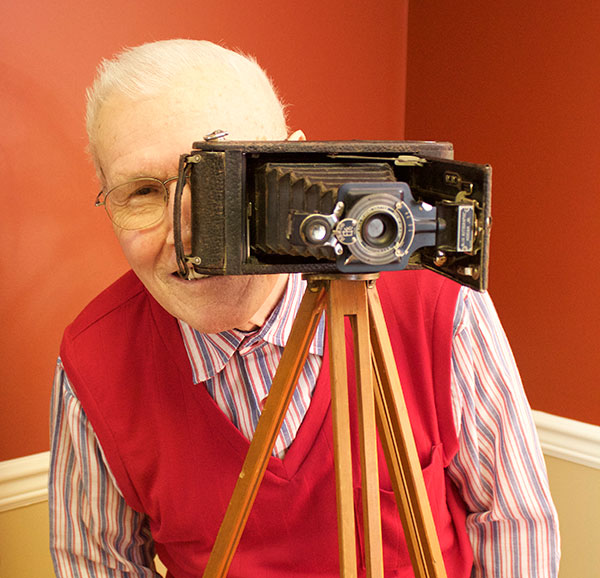
We’ve all known a “shutterbug,” someone who’s constantly taking photos of people and places.
In the modern world of social media and endlessly streaming “selfies,” it may be that shutterbugs were simply a few generations ahead of their time. People often wonder — what is it that drives this fascination with photos and photography?
For Manfred Guenther Hanke, the explanation lies in his astonishing life story. Taking dozens of photos daily is his way of sharing the simple joy he finds in everyday life. It’s a joy only he can fully comprehend.
Manfred was born in the city of Schweidnitz in Silesia, Germany, in 1930. Much of his life growing up was ordinary and simple, surprising considering he lived on a continent where civilization was in free-fall disintegration. Given that Silesia lies at the intersection of Germany, Poland and Czechoslovakia, one might think that Manfred saw atrocities or experienced the pain of brutal inhumanity. He has few memories of war horrors. His story is timely, coinciding with the 70th anniversary of the end of World War II.
 What he does recall is attending Hitler Youth rallies, where he sang songs extolling German pride and nationalism, and engaged in physical fitness calisthenics. Manfred was drawn into the Nazi propaganda and indoctrination machine, as were all of his peers. It wasn’t something people resisted, even passively.
What he does recall is attending Hitler Youth rallies, where he sang songs extolling German pride and nationalism, and engaged in physical fitness calisthenics. Manfred was drawn into the Nazi propaganda and indoctrination machine, as were all of his peers. It wasn’t something people resisted, even passively.
The propaganda efforts also excluded news via media censorship. Growing up in Silesia, Manfred rarely felt the war. When he was 9 or 10, he recalls prisoners being marched near his home. He knew they were Jews because they were identified with the yellow Star of David sewn onto their garments. He recalls thinking, “What if the tables were turned? Would the Jews do this to us?”
“For us, life was peaceful. The war did not affect our way of life until the Russians arrived in February 1945,” said Manfred. To avoid air raids and bombings, his family was forced to evacuate Silesia, boarding trains bound for Saxony. They were diverted to Bavaria. They were refugees, and certainly faced hardships, but they fared far better than most other German citizens.
While his family was intent on returning home to Silesia, living in Bavaria under American control was most fortuitous. When the Iron Curtain descended across the continent after the war, Europe was divided into a free West and a Communist-governed East. Manfred and his family were only 50 miles away, squarely on the right side of freedom. Others in his extended family were not so fortunate.
In Bavaria, Manfred continued his education and corresponded with a pen pal in the United States. He wrote to Betty Armstrong, whose family later sponsored Manfred’s visa by providing him with steady work and a home. He sailed into Boston Harbor to meet the woman he fell in love with via letters, and married her eight months later. He documented his arrival with a photo.
 Manfred continues to capture life’s simple moments, taking pictures because he feels the need to share his joy with the world. Photography is a hobby turned into a fascination after retirement, he says. With life moving at a faster pace, it seems there is more to capture than ever before. Perhaps by capturing these images, Manfred realizes more than most the value of life and why it’s important not to miss anything about the world we live in. He narrowly escaped being on the wrong side of history.
Manfred continues to capture life’s simple moments, taking pictures because he feels the need to share his joy with the world. Photography is a hobby turned into a fascination after retirement, he says. With life moving at a faster pace, it seems there is more to capture than ever before. Perhaps by capturing these images, Manfred realizes more than most the value of life and why it’s important not to miss anything about the world we live in. He narrowly escaped being on the wrong side of history.
Manfred shares his good fortune with everyone he meets. Just ask any one of his 1,314 Facebook followers that Manfred calls friends. He has a special place in his heart for the people at Fairhaven Community in Upper Sandusky, where he has been a Fast Track Rehab patient following two hip surgeries and a cardiac episode. He visits often and volunteers there, sharing his love for photography at every opportunity as their unofficial photographer. Fairhaven staff and residents are fond of his loyalty and look forward to his visits.
Having survived being in Europe during the war and missing the Iron Curtain by a few kilometers, Manfred savors the taste of freedom. His luck never ran out. Fortune and blessing found him then and keep him now. It’s a triumph of his creative spirit.
